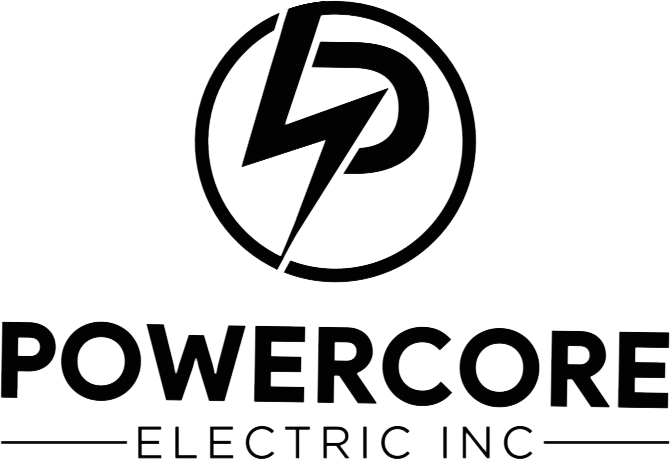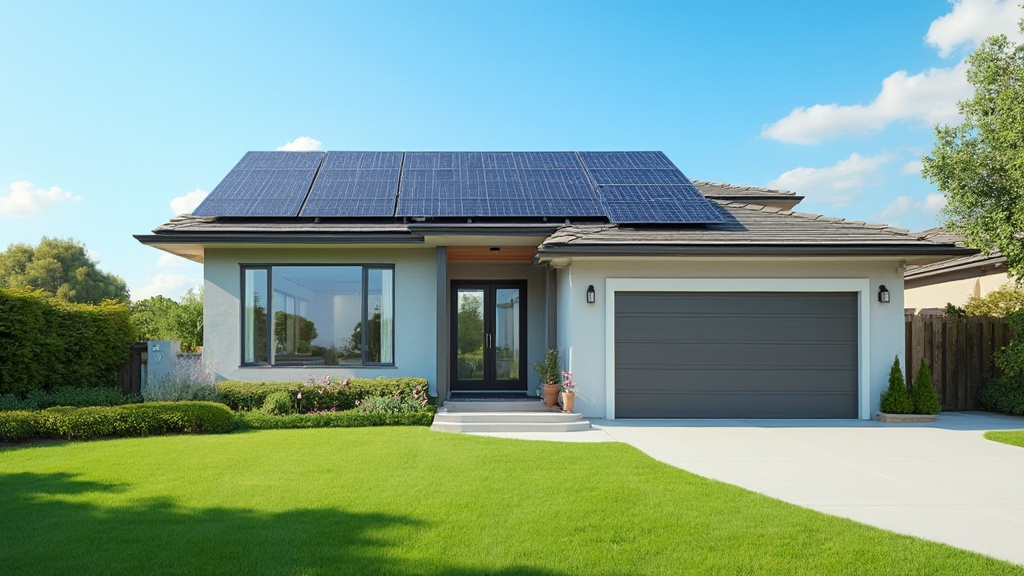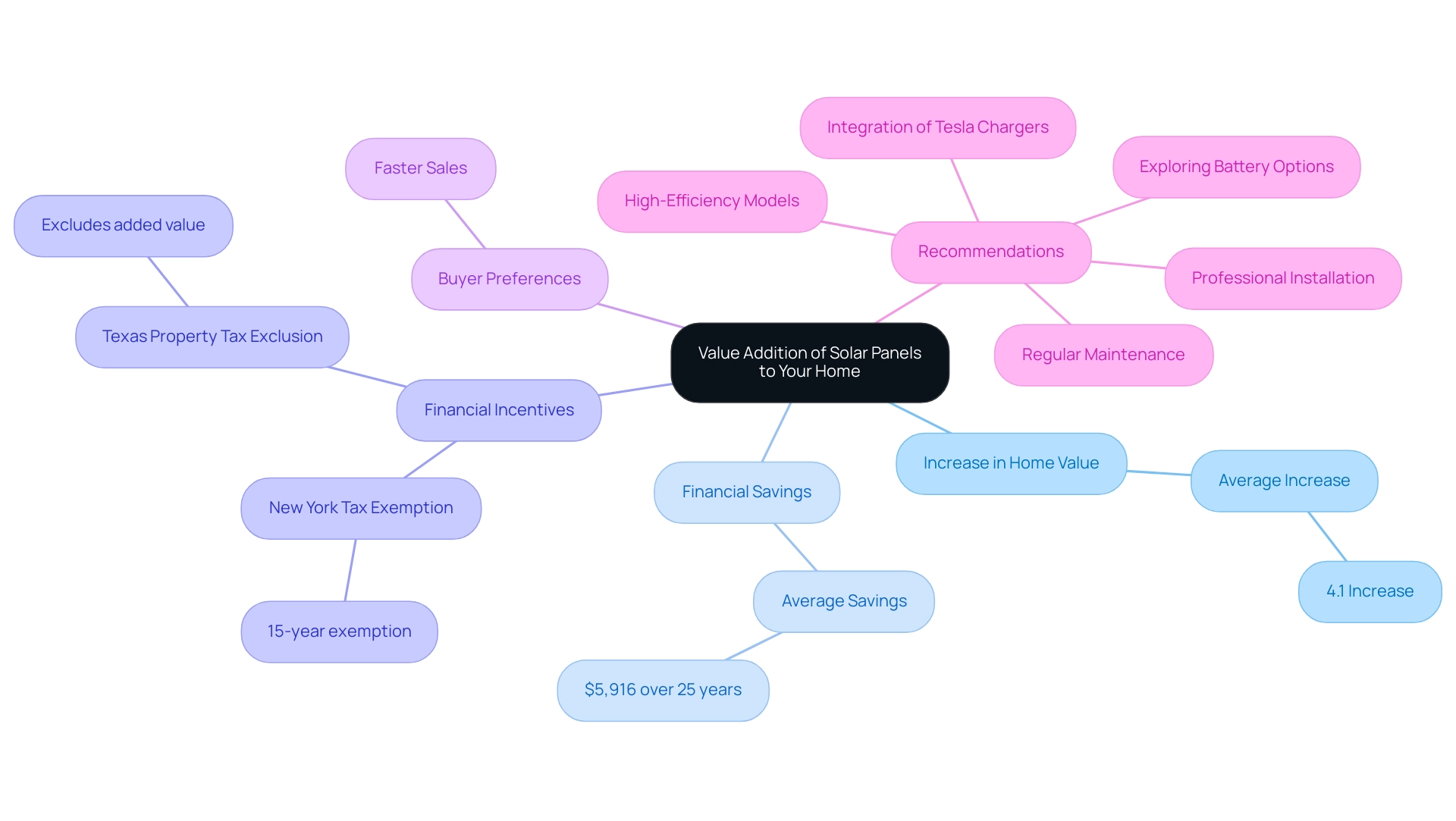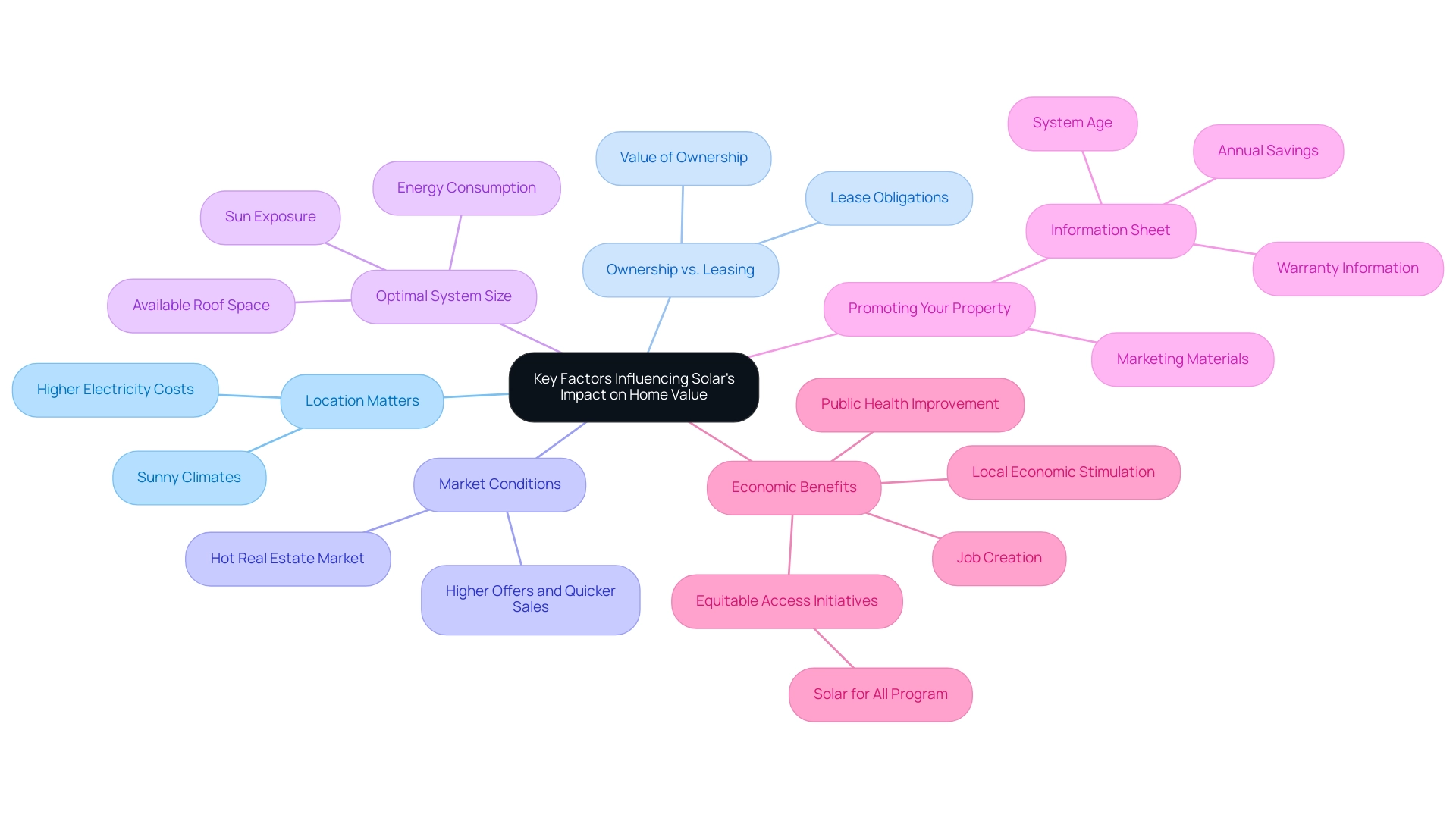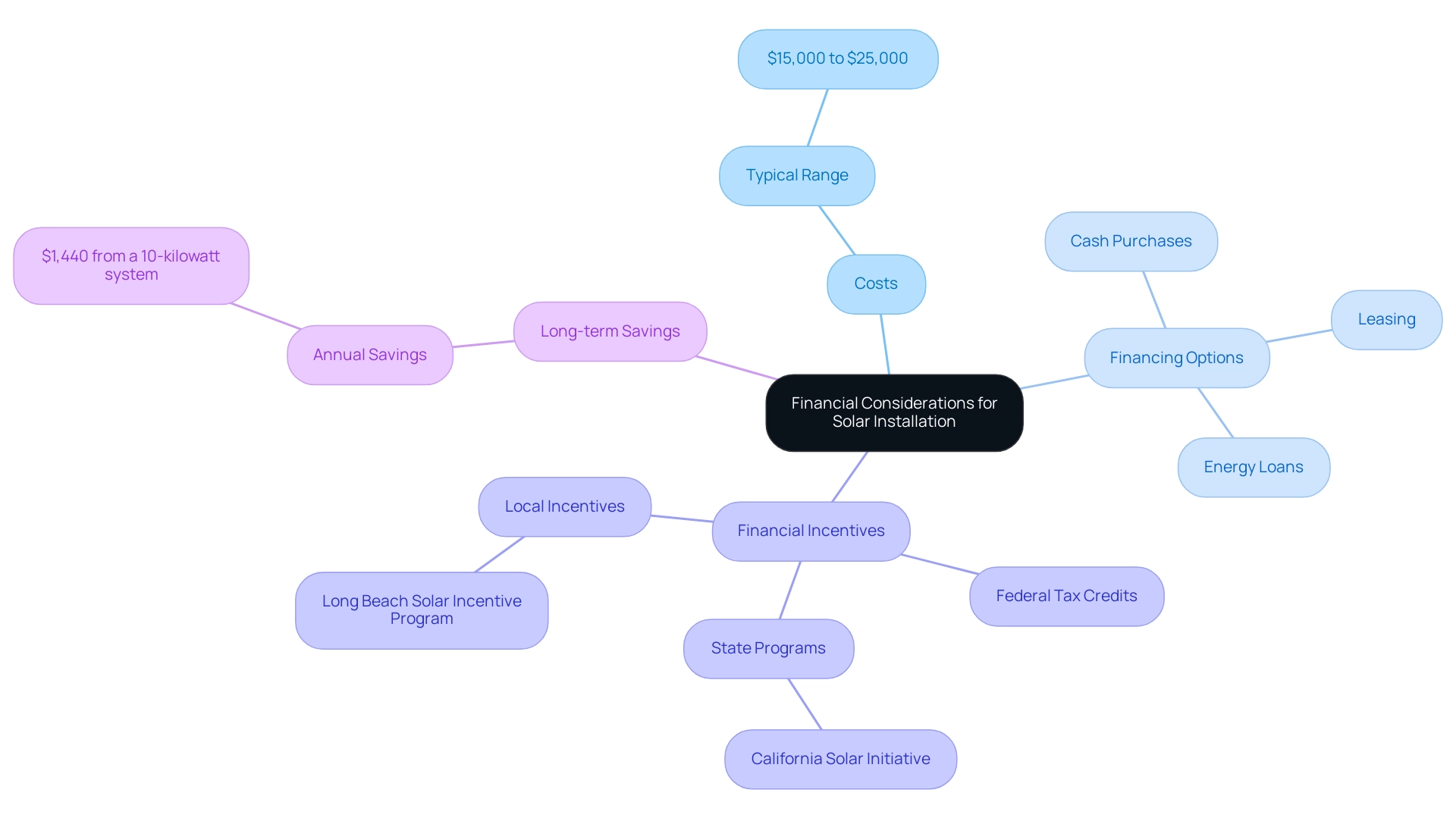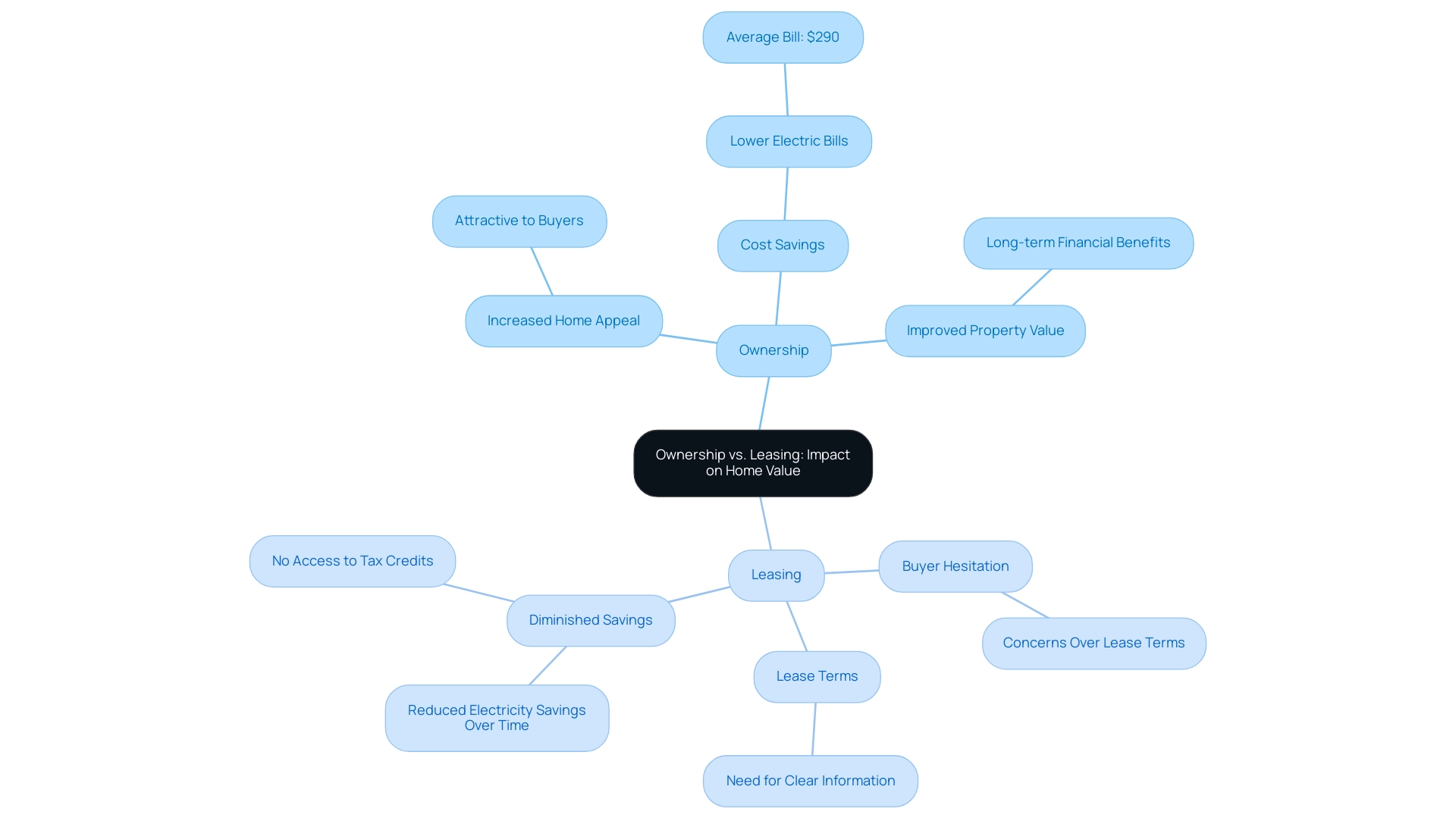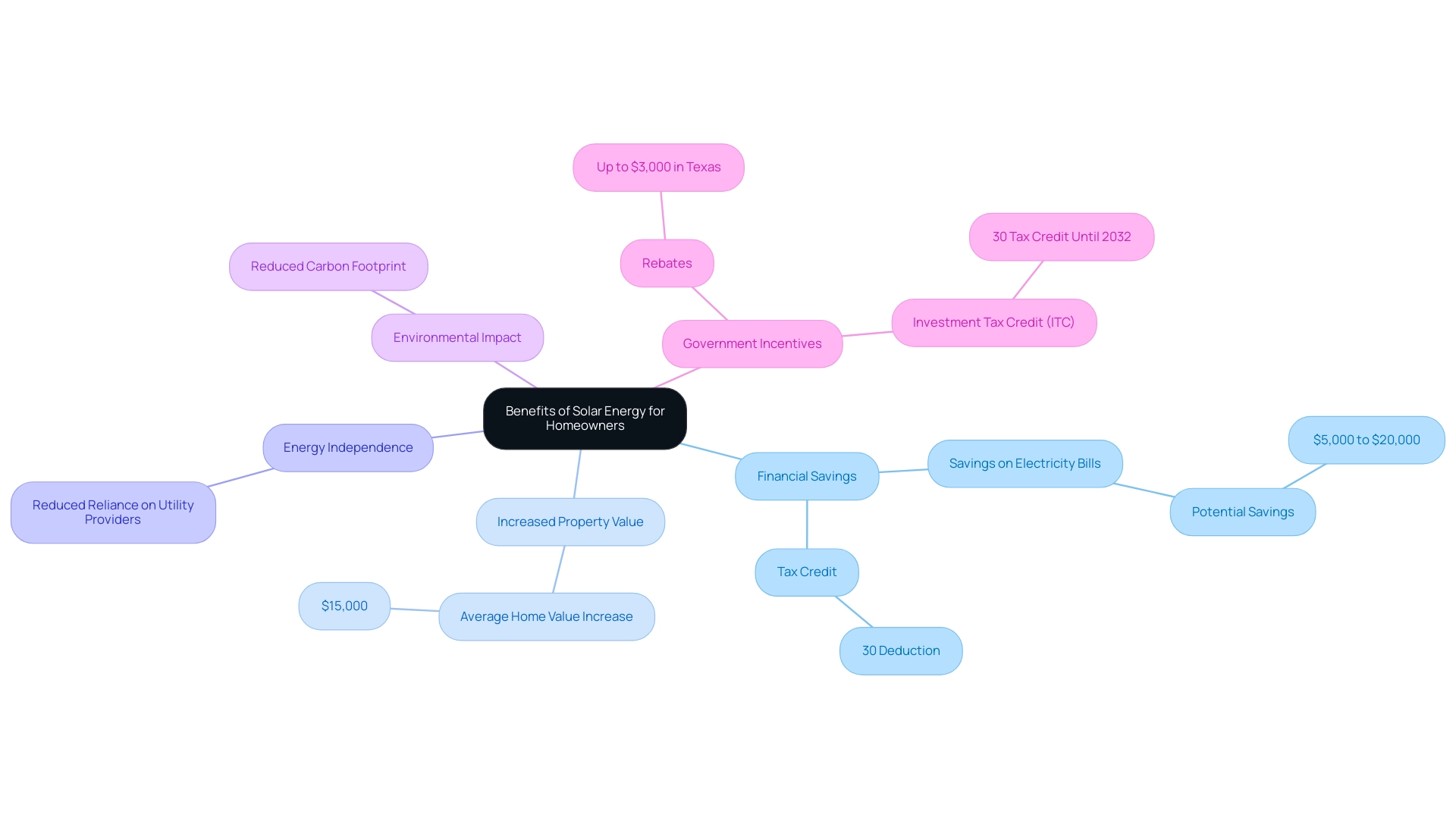Introduction
In a world increasingly focused on sustainability, the decision to install solar panels is more than just an eco-friendly choice; it’s a savvy investment that can significantly enhance a home’s value. Homeowners are discovering that properties equipped with solar energy systems not only contribute to lower energy bills but also appeal to a growing market of environmentally-conscious buyers.
With an average increase of about 4.1% in property value, the benefits of going solar extend beyond immediate financial savings. From tax incentives to faster sales, the advantages are compelling.
This article delves into how solar panels can elevate a home’s worth, key factors influencing this value addition, and the financial considerations that come into play, empowering homeowners to embrace renewable energy while making a smart financial decision.
Understanding the Value Addition of Solar Panels to Your Home
Installing photovoltaic panels can be a wise choice for environmentally aware homeowners seeking to enhance their property’s worth, especially when considering the solar for home price and adopting sustainable living. Typically, residences fitted with energy systems see an increase in solar for home price of approximately 4.1%. This rise is largely due to the increasing demand for energy-efficient homes, as buyers are eager to make eco-friendly choices.
When potential purchasers observe a renewable energy system, they acknowledge the possibility for reduced energy costs and long-term savings, with average savings from this technology in Wyoming estimated at $5,916 over 25 years. Additionally, homeowners in states like New York can benefit from a 15-year property tax exemption for renewable energy systems, while Texas homeowners can exclude the added value of these installations from their property tax assessments. These financial incentives make properties with solar for home price installations particularly appealing in a competitive market.
Furthermore, homes with renewable energy systems, such as solar for home price, tend to sell faster than traditional residences, reflecting a shift in buyer preferences towards sustainability. To enhance the effectiveness of solar panels, homeowners should:
- Choose high-efficiency models
- Guarantee professional installation
- Maintain their systems regularly
Proper installation and upkeep not only enhance performance and longevity but also contribute to a better solar for home price.
Additionally, integrating Tesla chargers can further enhance the appeal of a property, as electric vehicle ownership grows. Homeowners should also consider government programs that support renewable energy installations and explore battery options for efficient energy storage, which can provide additional savings and energy independence. Ultimately, incorporating renewable energy, such as solar for home price, promotes environmental sustainability while significantly boosting your property’s marketability.
Key Factors Influencing Solar’s Impact on Home Value
When it comes to understanding how photovoltaic systems can enhance your property’s worth, the solar for home price is one of the key factors to consider.
-
Location Matters: Homes basking in sunny climates or those situated in areas with higher electricity costs often experience a significant increase in worth. In fact, studies show that residences with photovoltaic systems can demand approximately $5,911 more for each kilowatt of installed power, influencing the solar for home price.
For a typical 4 kW system, that could mean an impressive increase of $23,644 over the solar for home price!
-
Ownership vs. Leasing: Owning your energy system typically adds more value than leasing it. Many buyers prefer the freedom that comes with an owned system, as it eliminates the hassle of lease obligations and ongoing payments.
-
Market Conditions: In a hot real estate market, homes fitted with renewable energy systems can truly stand out. They stand out to potential buyers, which results in higher offers and quicker sales, particularly for solar for home price.
-
Optimal System Size: Homeowners should also consider their energy consumption, sun exposure, and available roof space when determining the optimal size of their energy array. These factors can greatly affect the overall enhancement of photovoltaic systems, including the solar for home price.
-
Promoting Your Property: Emphasizing the photovoltaic system in promotional materials and supplying a one-page information sheet outlining the system’s age, warranty details, and yearly savings can be advantageous when considering the solar for home price while selling your property.
-
Real-World Example: A case study titled ‘Value Addition of Photovoltaic Panels’ shows that these panels can enhance property value by lowering electricity bills and mitigating future rate increases, thereby positively influencing the solar for home price and appealing to buyers seeking energy independence and sustainability.
In addition, investing in renewable energy technology not only shields you from increasing utility expenses but also aids in decreasing greenhouse gas emissions, aligning your home with eco-friendly practices.
Furthermore, the economic benefits extend beyond individual homeowners; heating systems can create jobs, improve public health by reducing air pollution, and stimulate local economies. Initiatives like the Biden-Harris administration’s Solar for All program enhance equitable access to renewable energy, ensuring that the advantages of this energy source reach diverse communities.
By keeping these factors in mind, you can better assess the potential return on investment from your energy system, including the solar for home price, making your home not just a place to live, but a smart financial move for the future.
Financial Considerations: Costs and Financing for Solar Installation
When considering the installation of photovoltaic panels, it’s essential to understand that costs can vary significantly based on factors like system size, equipment quality, and the complexity of the installation. On average, homeowners can expect the solar for home price to range between $15,000 and $25,000 for a typical residential energy system. For many, financing alternatives such as cash purchases, energy loans, and leasing offer a way to make this investment more manageable.
Solar loans, in particular, are a popular choice because they allow homeowners to spread the cost over time, often at attractive low-interest rates. However, it’s crucial to remember that you’ll be responsible for any repairs and maintenance your energy system requires outside the scope of its warranty. Regular maintenance is vital for efficiency and longevity, including innovative cleaning solutions that keep your panels operating at peak performance.
Additionally, don’t overlook the financial incentives available!
- Federal tax credits and state-specific programs, such as the California Solar Initiative, can substantially lower those upfront costs, making renewable energy not just an environmentally friendly choice but also a smart financial decision that can enhance your property value.
- Local incentives and rebates specifically for Long Beach residents, such as the city’s Solar Incentive Program, further promote renewable energy adoption.
As you consider your options, the initial investment in solar for home price can lead to long-term savings—like the $1,440 annual savings from a 10-kilowatt photovoltaic system—providing a solid return on investment (ROI). Grasping how photovoltaic panels transform sunlight into electricity can also aid in appreciating the technology behind your investment. This makes renewable energy a win-win for both your wallet and the planet, aligning perfectly with the eco-conscious homeowner’s values.
Ownership vs. Leasing: How It Affects Your Home’s Value
When it comes to energy systems, ownership often stands out as the more valuable option for homeowners. Possessing your photovoltaic systems can effortlessly fit into the sale of your residence, appealing to purchasers who wish to evade future rental expenses. For context, the average electric bill is $290 per month, and having photovoltaic systems can significantly lower this expense over time, unlike leased systems which may not provide the same savings.
Conversely, leased systems can create hesitation among potential buyers, particularly those wary of taking on existing contracts. Roxanne Downer, a commerce editor at Today’s Homeowner, notes that understanding the implications of leasing is important for both buyers and sellers. If you decide to lease, it’s essential to provide potential buyers with clear information about the lease terms to address any concerns they may have.
Furthermore, a case study emphasizes the drawbacks of leasing photovoltaic systems, indicating that it can result in diminished electricity savings over time and adversely affect property value. Moreover, investigating government initiatives that provide incentives for renewable energy system ownership can enhance this investment’s attractiveness. Property owners should also contemplate the advantages of cleaning services for photovoltaic systems to sustain efficiency and the possibility of incorporating Tesla residential chargers and battery solutions to improve energy autonomy.
Ultimately, possessing your renewable energy systems not only increases your home’s appeal but can also improve its overall worth, making it a beneficial investment for homeowners interested in solar for home price.
The Broader Benefits of Solar Energy for Homeowners
Solar energy presents a treasure trove of benefits for eco-conscious homeowners, including enhancing the solar for home price, which goes beyond merely increasing property value. By engaging in government programs for energy systems, you can greatly lower installation expenses and optimize your output. Homeowners have reported savings on their electricity bills, potentially saving between $5,000 to $20,000 over the lifespan of their photovoltaic panels, reflecting the benefits of solar for home price.
The ability to generate your own electricity fosters a sense of energy independence, allowing you to rely less on utility providers and their price fluctuations. Moreover, by utilizing sunlight energy, you’re reducing your carbon footprint and contributing to a more sustainable planet for future generations. In Texas, for example, homeowners can obtain up to $3,000 in rebates from utility companies, making the switch to renewable energy even more affordable.
Don’t forget the federal Investment Tax Credit (ITC), which allows you to deduct 30% of your installation costs from federal taxes until 2032, enhancing the financial appeal of renewable energy. A study from the Lawrence Berkeley National Laboratory discovered that, on average, energy systems can elevate a home’s worth by approximately $15,000, providing insight into the impact of solar for home price. With an average payback period of around 15 years, you gain a clear understanding of your return on investment.
Additionally, maintaining your energy panels through professional cleaning services can further optimize their efficiency and longevity. By making this eco-friendly choice, such as investing in solar for home price, you’re not just enhancing your property’s value; you’re also joining a growing movement towards sustainable living that benefits both your wallet and the environment. Ready to make the change to renewable energy?
Contact Powercore Electric today to explore how solar energy can transform your home into a beacon of sustainability and savings!
Conclusion
Investing in solar panels offers a wealth of advantages for homeowners looking to enhance their property value while embracing sustainability. The statistics speak for themselves, with an average increase of approximately 4.1% in home value for those equipped with solar energy systems. This boost is driven by the growing demand for energy-efficient homes, as buyers increasingly prioritize eco-friendly features and the promise of lower energy bills.
Key factors such as location, ownership versus leasing, and market conditions play a crucial role in determining how much value solar panels can add. Homeowners can maximize their returns by:
- Opting for high-efficiency models
- Ensuring professional installation
- Maintaining their systems regularly
Additionally, taking advantage of financial incentives, like tax credits and state-specific programs, can significantly lower installation costs, making solar energy not only a smart environmental choice but also a wise financial investment.
Beyond property value, solar energy systems contribute to long-term savings and energy independence, allowing homeowners to enjoy substantial reductions in their electricity expenses. The broader benefits extend to supporting local economies and fostering a more sustainable future for generations to come. Embracing solar energy is more than just a trend; it’s a meaningful step towards a greener lifestyle that enhances both the home and the planet. With the right approach, homeowners can transform their properties into valuable assets that reflect their commitment to sustainability.
